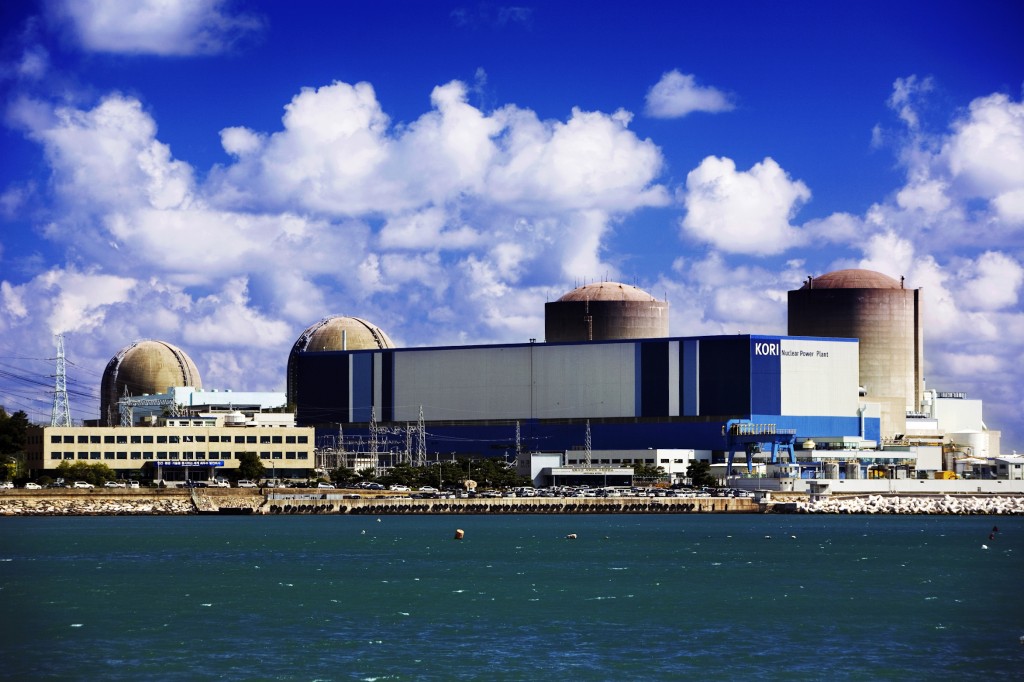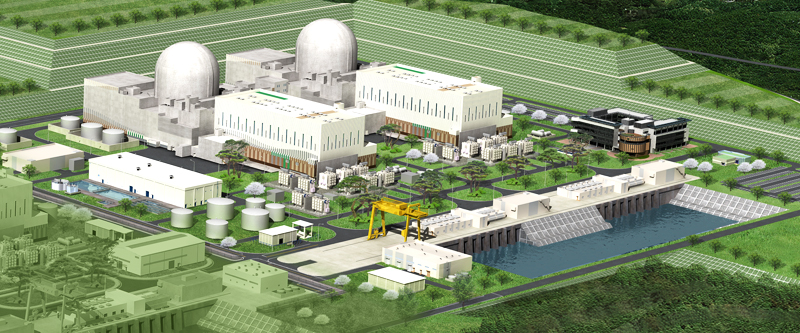South Korea Reverses Course
In a stunning but not wholly unexpected move, newly elected South Korean president Moon Jae-In announced during a ceremony marking the final shutdown of Kori Unit 1 that future nuclear power plants in South Korea will be cancelled and that the country will begin to shift toward renewables for its future energy needs-backed by natural gas.

Kori NPP courtesy Korea Hydro & Nuclear Power.
According to the statements made by Moon Jae-in, a discussion will be held to address the future of South Korea's Shin Kori Units 5 and 6 but no further units beyond those will be ordered. According to the South Korean president in a report from World Nuclear Association, the fate of these units rests upon his and the government's perception of the new units' safety, cost, and the cost of potential compensation for not constructing the units.
Jae-in admitted that the move to switch from nuclear to renewables will increase the cost of electricity. He was quoted by Financial Times (FT) as saying, "So far, the country's energy policy has focused on low prices and efficiency. But this should change now with our top priority on public safety and the environment."

Artist's concept of Shin-Kori Units 5 and 6, which have construction licenses but have not started work. These are APR1400 units - the most modern Korean type, and the type being built overseas in the UAE. Illustration courtesy Korea Hydro & Nuclear Power.
This reversal in course comes at a time when construction of South Korean nuclear plants had slowed as some of the newer site choices had run into local opposition. However, there were still fairly concrete plans for a further two South Korean-designed APR1400 units beyond the presently contested Shin-Kori-5 and -6 (to have been added to the Shin-Hanul plant) and the additional four South Korean-designed APR+ units to have been sited at Cheonji (or perhaps only two at Cheonji and the other two at Daejin). Because of the present developments, these last two APR1400s and all the APR+ units are now listed by the World Nuclear Association as "cancelled."
FT noted that experts are already questioning the potential for both increased energy costs and energy shortages as South Korea tries to swing to pushing renewables onto the grid, backed by (entirely imported) natural gas generation. FT also noted that the new South Korean president might even import Russian natural gas through a pipeline that traverses North Korea.
Also important is the impact that this move would have on the export of nuclear plants by South Korea. The world-leading Barakah nuclear plant (a four-unit APR1400 plant) is nearing completion in the United Arab Emirates, and South Korea has been actively promoting the export of further units. However, if the construction of new nuclear is halted in South Korea, it is hard to say whether or not the South Korean nuclear design industry could survive based upon sporadic and largely unpredictable exports. There is also the question of overseas buyers' desire that plants built in their nations be built first in South Korea; this would not be possible under the present plan if the APR+ never gets built in South Korea.
For now, it remains to be seen what the real impacts on South Korean energy prices will be-and it also hangs in the balance what will become of the last planned units at the venerable Kori/Shin-Kori nuclear plant site. Perhaps the public and South Korean businesses will recoil once the price of electricity begins to jump with no real change in public safety. It would have to be serious enough to force a change in leadership, however.

